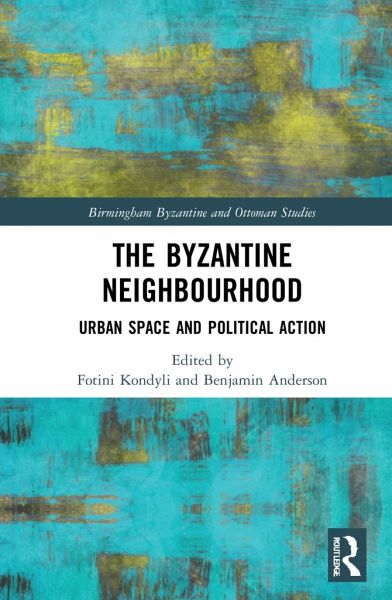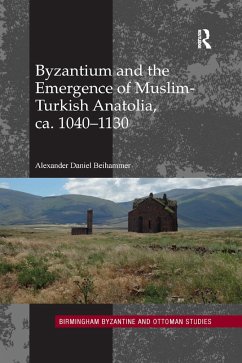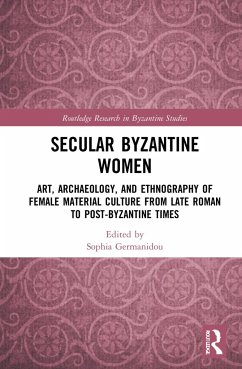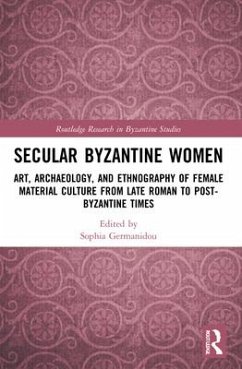
The Byzantine Neighbourhood
Urban Space and Political Action
Herausgegeben: Kondyli, Fotini; Anderson, Benjamin

PAYBACK Punkte
22 °P sammeln!
The Byzantine Neighbourhood contributes to a new narrative regarding Byzantine cities through the adoption of a neighbourhood perspective. It offers a multi-disciplinary investigation of the spatial and social practices that produced Byzantine concepts of neighbourhood and afforded dynamic interactions between different actors, elite and non-elite. Authors further consider neighbourhoods as political entities, examining how varieties of collectivity formed in Byzantine neighbourhoods translated into political action. By both acknowledging the unique position of Constantinople, and giving serio...
The Byzantine Neighbourhood contributes to a new narrative regarding Byzantine cities through the adoption of a neighbourhood perspective. It offers a multi-disciplinary investigation of the spatial and social practices that produced Byzantine concepts of neighbourhood and afforded dynamic interactions between different actors, elite and non-elite. Authors further consider neighbourhoods as political entities, examining how varieties of collectivity formed in Byzantine neighbourhoods translated into political action. By both acknowledging the unique position of Constantinople, and giving serious attention to the varieties of provincial experience, the contributors consider regional factors (social, economic, and political) that formed the ties of local communities to the state and illuminate the mechanisms of empire. Beyond its Byzantine focus, this volume contributes to broader discussions of premodern urbanism by drawing attention to the spatial dimension of social life andhighlighting the involvement of multiple agents in city-making.














